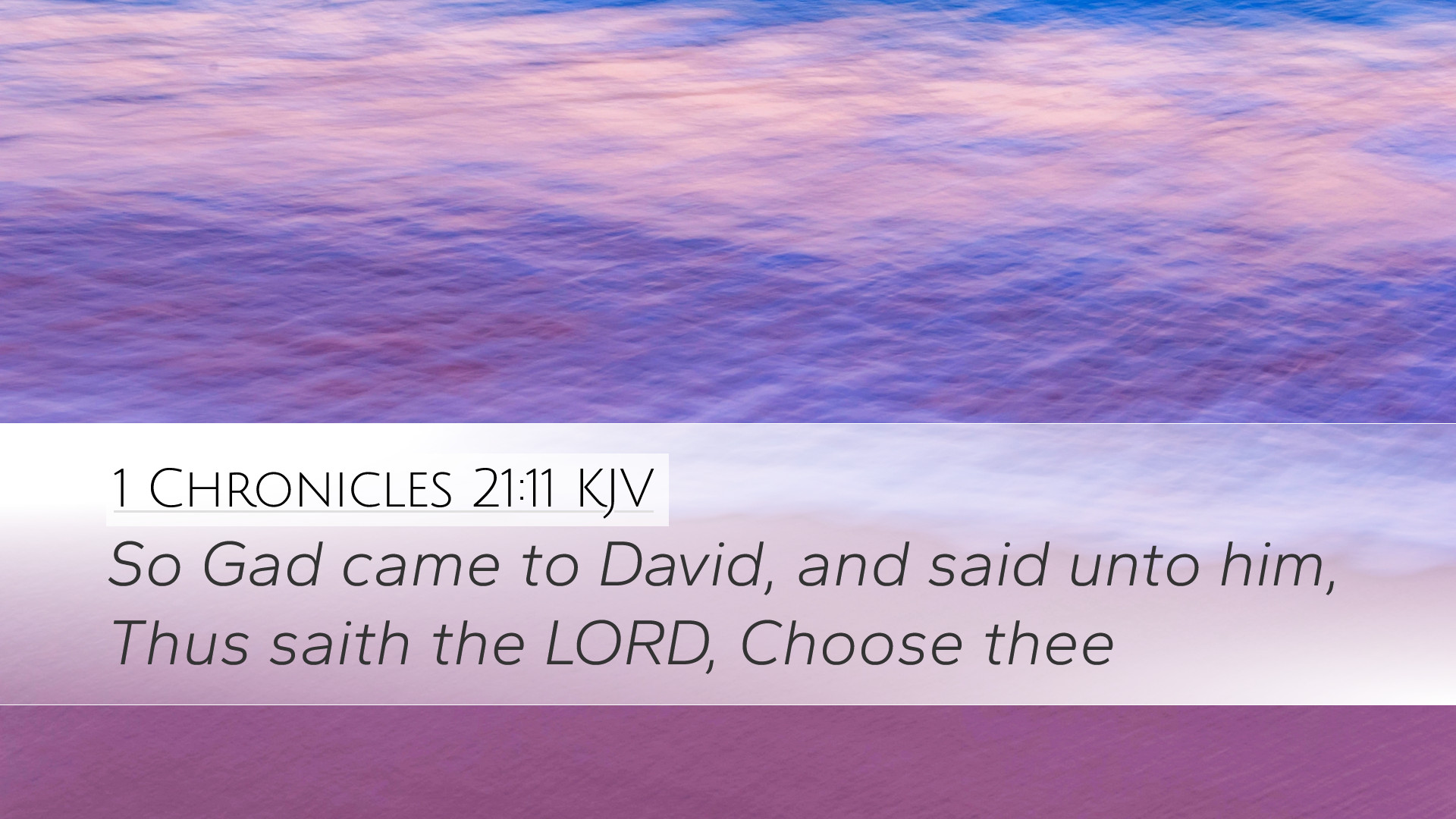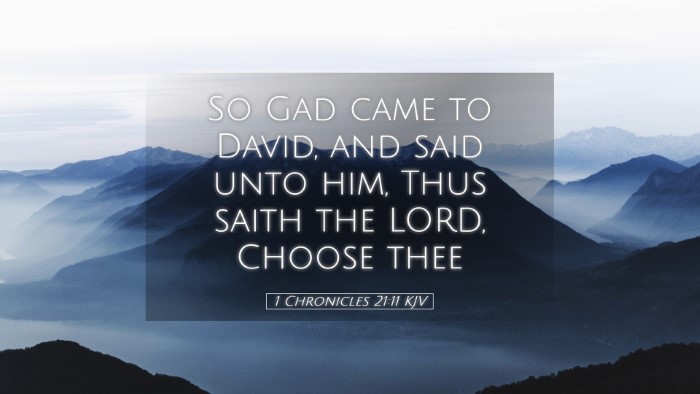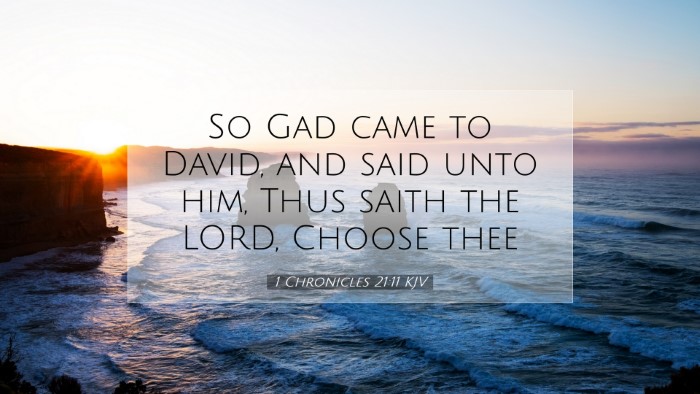Commentary on 1 Chronicles 21:11
Verse Text: "So Gad came to David, and said unto him, Thus saith the Lord, Choose thee." (1 Chronicles 21:11, KJV)
Introduction
In this verse, we encounter a pivotal moment in the life of King David, highlighting the divine interaction through the prophet Gad. This narrative emerges from a context of sin, repentance, and the consequential judgment that David must face. Understanding this verse involves exploring themes of obedience, divine communication, and the exercise of free will under the guidance of God.
Contextual Analysis
David had sinned by numbering the people of Israel, which was contrary to God's will. His actions incited divine anger, prompting God to send Gad to deliver an urgent message. This situation serves as a backdrop to the choices that David must now make. The verse marks a critical juncture where David is placed in a position of decision-making within the sovereignty of God.
The Role of Gad
Gad, as a prophet, acts as an intermediary between God and David. His announcement reflects the direct communication that characterizes prophetic ministry in the Old Testament. This moment serves to remind us of the importance of listening to God’s messengers and the guidance they provide in times of crisis.
Theological Implications
This verse draws attention to significant theological concepts, primarily the sovereignty of God and human responsibility. Through Gad’s command, we observe the interplay between divine authority and human agency.
Divine Sovereignty
God’s sovereignty is evident in His control over the events involving David. The choice presented to David is not an arbitrary one but rather a divinely orchestrated opportunity for David to respond to God’s will. The varying options that are to be presented to David will reflect the seriousness of sin and its repercussions, stressing the need for repentance.
Human Responsibility
David’s selection among the options provided demonstrates human agency within the framework of divine governance. This moment elucidates that while God’s plans prevail, He allows individuals to make meaningful choices. The tension between divine foreknowledge and human choice is a profound aspect of biblical theology explored throughout the Scriptures.
Commentary Insights
According to Matthew Henry, this verse can be seen as a demonstration of God’s patience and mercy. Even when faced with judgment due to sin, God presents David with a choice, thus allowing him a chance for repentance and restoration.
Albert Barnes notes the significance of divine communication in times of crisis. He underscores that God, through Gad, provides a clear directive for David, reinforcing the necessity of prophetic counsel when navigating difficult decisions.
Adam Clarke elaborates on the nature of the choices David must face, indicating that each option presented will yield different consequences. This further emphasizes the weight of David's responsibility in the chosen outcome and his relationship with God at that moment.
Practical Applications
This passage offers numerous applications for contemporary readers, particularly pastors, students, theologians, and scholars.
-
Listening to God:
The passage serves as a reminder of the importance of heeding God’s voice in decision-making. It encourages individuals to be attentive to divine guidance through prayer, scripture, and the influence of godly counsel.
-
The Weight of Our Choices:
Just as David faced significant choices, modern believers are called to recognize the implications of their decisions, reflecting on how those choices align with God’s will.
-
Repentance and Restoration:
The narrative ultimately points to the possibility of repentance and restoration following sin, reinforcing God’s continuing mercy toward those who turn back to Him.
Conclusion
1 Chronicles 21:11 stands as a compelling reminder of the dynamics between divine communication and human decision-making. It invites all who read it to examine their lives in light of God's sovereignty and their responsibilities as followers. The thematic richness of this passage encourages believers to actively seek divine guidance while acknowledging the serious nature of their choices in accordance with God's will.


